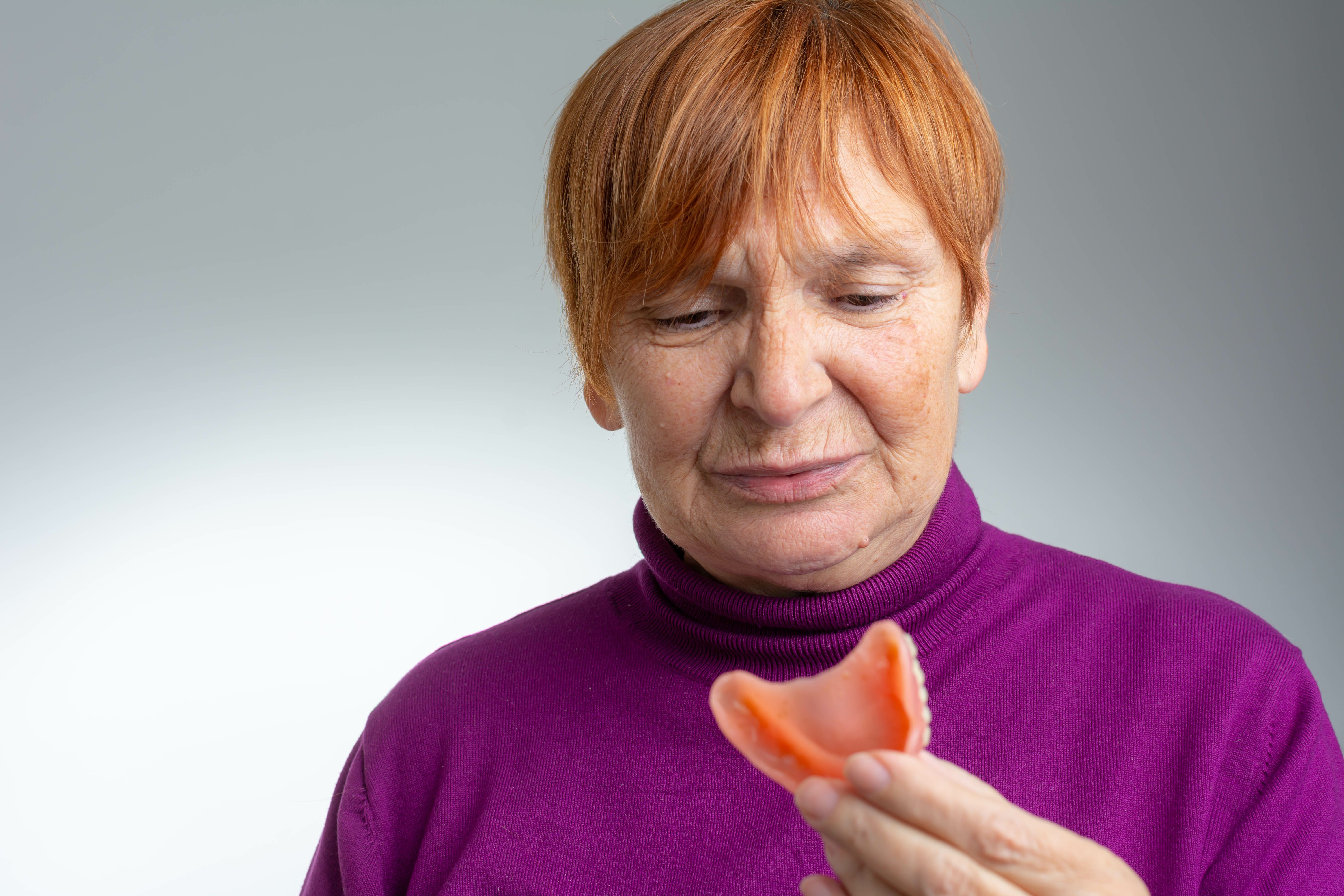Research Demonstrates Emotional Struggles Associated with Tooth Loss and Dentures
A new study examines the emotional effects of tooth loss and dentures and calls on care providers to employ empathy in these cases.
Research Demonstrates Emotional Struggles Associated with Tooth Loss and Dentures. Image credit: © Nenad - stock.adobe.com

A study from the University of Sheffield has revealed patients’ emotional challenges and struggles when faced with tooth loss and the adoption of dentures. The research, conducted by the Healthy Lifespan Institute and the School of Clinical Dentistry, provides a new understanding of the emotional and physical challenges that patients endure, offering insights that could enhance denture care and tooth loss treatment, according to a press release from the University.
The study highlights that patients experience a wide range of emotional challenges after losing teeth. Feelings of self-consciousness, shame, and fear are common, as are physical sensations like pain and sensitivity, per the press release. These emotional responses can significantly impact patients' quality of life and their overall success in adapting to dentures. The research identifies 4 distinct stages in the patient journey:
- Experiencing the physical loss of teeth.
- A period marked by emotional turmoil, including self-consciousness, depression, and struggle with the new reality of needing dentures. Patients may feel shame, anger, or fear, but also a glimmer of hope, per the press release.
- The stage where patients feel optimistic about regaining their smile and normal eating functions with dentures.
- Patients adjust their expectations and learn to manage life with dentures, developing strategies to disclose their use comfortably.
With approximately 10 to 15 percent of the population wearing removable dentures, the study emphasizes that this can become a hidden disability for many. The emotional burden of feeling embarrassed or fearing dentures might fall out leads some to avoid social situations altogether. This can have severe impacts on their social interactions and daily life, per the study. While dentures are often the only viable option for many, alternatives like bridges and implants are usually too costly and less accessible due to the scarcity of care providers in the U.K. This financial and accessibility barrier further complicates the emotional and physical journey of patients dealing with tooth loss.
The research underscores the importance of empathy from dentists during the adjustment period. Understanding the emotional difficulties can lead to better patient outcomes. Barry Gibson, Professor in Medical Sociology at the University of Sheffield, stated, "Tooth loss can be hugely traumatic, and this study has uncovered just how challenging it is for people needing partial dentures. Feelings such as embarrassment or shame can significantly affect the process of having dentures made and fitted."
To visually represent the diverse emotional journeys of denture wearers, the research team partnered with Sheffield artist Gina Allen. The resulting artwork, "Prosthetic Hope and Compromise," uses color and imagery to depict the varied experiences of patients, from a young woman with a successful outcome to an older woman still struggling with her denture.
Gina Allen commented, "It was a really interesting challenge to be involved in, trying to use the visual parameters of an artwork to convey some of that in an engaging and meaningful way." The collaboration has led to the development of a new patient questionnaire designed to identify and communicate patient needs to the practitioner.
Bilal El-Dhuwaib, Clinical Teacher in Restorative Dentistry at the University of Sheffield, emphasized the significance of the study, saying, "By equipping dentists with the tools to understand these challenges, we can create a more compassionate and effective approach to tooth replacement."
This study marks a crucial step toward improving the dental care system by acknowledging and addressing the hidden emotional challenges faced by denture wearers.